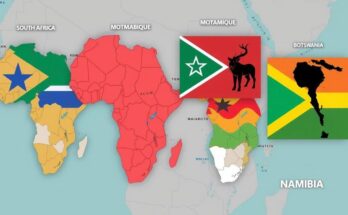Venezuelan comedians, largely in exile due to political repression and economic hardships, have found ways to continue their craft, intertwining humor with critical social commentary. Prominent figures, like Estefanía León, are part of a growing comedic movement that addresses themes of migration and authoritarianism, with their work resonating both within and beyond their home country. In spite of repression, the resilience and success of these comedians illustrate the vital role humor plays in maintaining cultural identity and providing community.
The plight of Venezuelan comedians, now largely in exile, highlights their resilience and creativity in the face of political and economic adversities. Estefanía León, a prominent figure among them, underscores the struggle of injecting humor into a life marred by a severe economic crisis, governmental oppression, and personal sorrow, such as her father’s health issues requiring arduous efforts for basic necessities. After fleeing to Mexico City in 2018, León rediscovered her comedic voice and has since become a central character in the burgeoning Venezuelan comedy scene now thriving abroad. Comedians like León, as well as George Harris, José Rafael Guzmán, and Víctor Medina, have found new audiences outside Venezuela, using humor to address themes of migration and the authoritarian regime under Nicolás Maduro, who has tightened his grip on power amidst a humanitarian and political crisis. The comedy collective El Cuartico, co-produced by León, capitalizes on social media platforms, sharing videos that resonate with shared Venezuelan experiences—highlighting absurdities in migration and the bureaucratic entanglements they face. Despite the critical tone that often pervades their sketches, such as mocking Maduro’s refusal to relinquish power, their use of humor transcends borders and touches on universal themes relatable to a Latin American audience. The comedians explore mundane issues as well, thereby broadening their appeal while retaining a distinctly Venezuelan flavor in their work, a reflection of their homeland rather than a departure from it. In Venezuela, the comedy scene persists, albeit under duress, with clubs like Pizpa allowing performers such as Alejandra Otero to navigate the perilous landscape of political satire. Otero’s impressions and parodies may evade the regime’s censorship for now, yet the stakes remain perilously high, characterizing the struggle for comedic expression in a society desperate for levity amidst hardship. Their stories reveal how laughter can serve as a mechanism for coping, identity formation, and societal critique, even in the darkest of times. Ultimately, the resilience of these artists not only exemplifies a profound cultural response to the dictatorship but also highlights the indomitable spirit of a generation seeking to reclaim their narrative through humor.
Venezuela has been in a severe political and economic crisis, particularly post-2015, which has forced millions to flee the country in search of better living conditions. This mass migration has affected various sectors, including the entertainment industry, where comedians have become important societal commentators. Outlawed by an authoritarian regime led by Nicolás Maduro, expression through comedy has evolved, with many comedians seeking asylum in other countries where they can freely articulate their perspectives. Despite significant difficulties, Venezuelan comedians both inside and outside the country have found ways to connect with their audience through humor, tackling heavy themes such as dictatorship, migration, and national identity while also providing comic relief in everyday life.
Venezuelan comedians in exile have emerged as vital voices, using humor to critique political oppression while addressing shared experiences of migration and identity. Despite the challenges faced, including restrictions and potential repercussions in their homeland, these artists continue to thrive and find success on international platforms. Their work serves a dual purpose: fostering a sense of community among displaced Venezuelans and challenging the political status quo through satire. The resilience of these comedians not only brings laughter and levity but also serves as a reminder of the power of humor in times of adversity.
Original Source: www.nytimes.com




